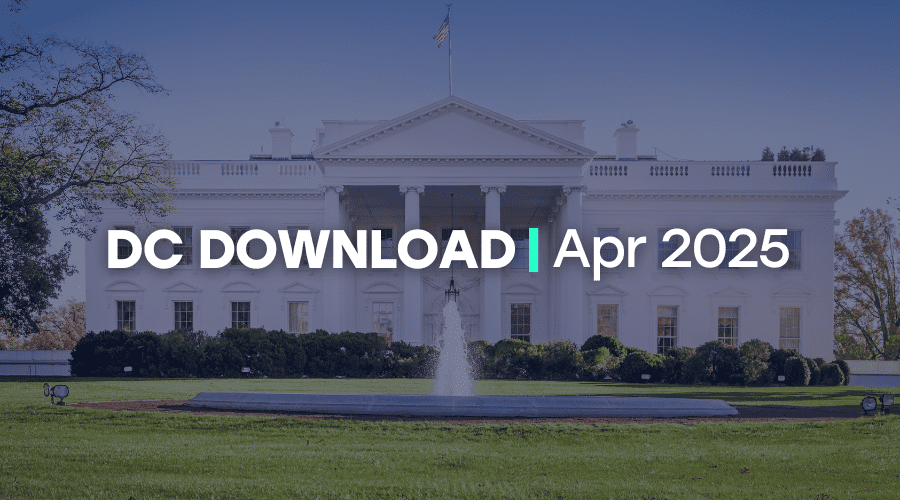Fall is in full swing in DC with the leaves turning orange and yellow, and Congress has less than a month to keep the government funded before the Nov. 21 deadline. Here is a rundown of the latest developments that nonprofits should be aware of during October.
Congressional Landscape Overview
After this week, Congress will have just eight days remaining with both chambers in session before the continuing resolution to keep the government funded expires on Nov. 21. Last week, Senate Appropriations Chairman Richard C. Shelby (R-AL) said he believes another continuing resolution will be needed and that it may run beyond the end of this calendar year into next year, as opposed to sometime later in 2019, due to the House’s impeachment inquiry, Roll Call reported.
That timeline threatens to push into early 2020 completion of a broad government funding package that congressional tax-writers intend to be the vehicle for items including tax extenders, Tax Cuts and Jobs Act (TCJA) technical corrections, repeal or delay of ACA taxes, and a retirement security bill (SECURE Act). This is the package in which potential nonprofit sector priorities could be considered, such as repealing the nonprofit transit and parking tax or simplifying the private foundation excise tax.
IRS Sets 2020 Priorities for the Nonprofit sector
This month, the Internal Revenue Service (IRS) released its list of priorities for tax exempt organizations in 2020. The IRS Tax Exempt & Governmental Entities (TE/GE) division will focus on six areas during 2020 all of which are data driven: Compliance Strategies; Data-Driven Approaches; Referrals, Claims and Other Casework; Compliance Contacts; Determinations; and, Voluntary Compliance and Other Technical Programs.
Next year the IRS will focus on the digitalization of public records, which is why the IRS Form 1023 will begin to go electronic during January 2020, although there is not yet a date certain when the process will be digital only. The Form 1023 is the Application for Recognition of Exemption Under Section 501(c)(3) of the Internal Revenue Code.
Presidential Campaign Proposals and Nonprofits
Earlier this month, Vice President Joe Biden’s presidential campaign released a $750 billion higher education plan aimed at investing resources in community colleges and making them more affordable and accessible to more Americans.
Biden would pay for the $750 billion plan by eliminating a complex tax provision called “stepped-up basis,” which adjusts the value of inherited assets in a way that allows heirs to avoid paying taxes on any appreciation in value the asset accrued during the decedent’s lifetime. Biden would also cap at 28% the itemized deductions the wealthiest Americans can take. Capping the value of the charitable deduction would have long-lasting negative consequences on the charitable organizations upon which millions of Americans rely for vital programs and services and would exacerbate alarming trends facing charitable giving.
Senator Elizabeth Warren also recently released an education plan, which includes directing the IRS to investigate “so-called nonprofit schools that are violating the statutory requirements for nonprofits.” The plan seems to focus on charter schools operating in service of for-profit entities and combating self-dealing violations by nonprofit schools.
Legislation Introduced to Lower the Cost of College and Improve PSLF
On Oct. 15, the Committee on Education and Labor introduced the College Affordability Act (H.R. 4674)—a comprehensive overhaul of the higher education system that aims to lower the cost of college for students and families and improve the quality of higher education through stronger accountability.
If enacted, this legislation would also expand the Public Loan Forgiveness Program (PSLF) to allow borrowers who were in the wrong repayment plan to count original monthly payments toward the total required for loan forgiveness. It would also shorten the time to total loan forgiveness for America’s teachers, and require the Department of Education to create an appeal process to help borrowers dispute denied PSLF applications.
The enhancements related to PSLF respond to the findings presented by the House Education and Labor Committee in a report detailing the Department of Education’s failure to properly manage the PSLF program. You can learn more about the College Affordability Act (H.R. 4674) here.
Senate Rejects Repeal of SALT Rule
Last week, the Senate rejected 43-52 an attempt to repeal regulations cracking down on state and local tax (SALT) workaround laws enacted by several states. These workaround laws were created to circumvent new limits on the SALT deduction, which is a key feature of the 2017 tax code overhaul.



